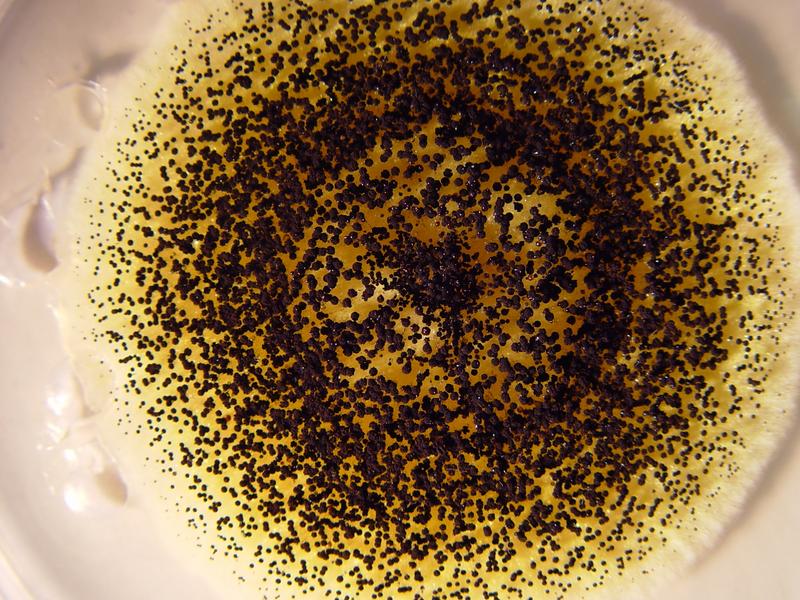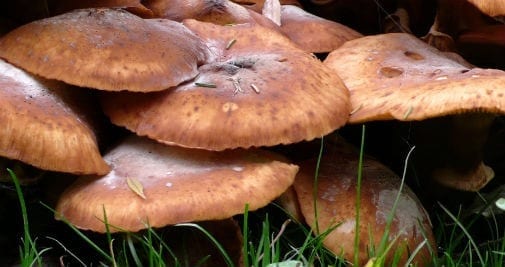Researchers have discovered a method of making jet fuel from a common fungus found in decaying leaves, soil and rotting fruit, which they believe will lead to the economically viable production of mould-based aviation biofuels in the next five years.
The researchers at Washington State University used Aspergillus carbonarius to create hydrocarbons, the chief component of petroleum, similar to those in aviation fuels.
Led by Birgitte Ahring, director and Battelle distinguished professor of the Bioproducts, Sciences and Engineering Laboratory at WSU Tri-cities, the researchers published their work in the April edition of Fungal Biology.
The fungus produced the most hydrocarbons on a diet of oatmeal but also created them by eating wheat straw or the non-edible leftovers from corn production. Fungi have been of interest for about a decade within biofuels production as the key producer of enzymes necessary for converting biomass to sugars.
Some researchers further showed that fungi could create hydrocarbons, but the research was limited to a specific fungus living within a specific tree in the rainforest, and the actual hydrocarbon concentrations were not reported.
Ahring’s group has previously been successful in using standard Aspergillus fungi to produce enzymes and other useful products, which have been patented and are under commercialization, so they decided to look into A. carbonarius and its potential for biofuels.
Fungi are complex microorganisms and are not always easy to work with, Ahring said. They have a complex biology that is often poorly understood.
“Not many people in this world actually do this,” she said. “The molecular biology piece of it is complicated.”
The researchers were assisted by Kenneth Bruno, a researcher at the U.S. Department of Energy’s Pacific Northwest National Laboratory, who developed a method essential for the genetic manipulation of A. carbonarius. The research received funding from the Danish Council for Strategic Research under the program for Energy and Environment.
Using fungi for hydrocarbon and biofuels production is better than other methods because they do the work themselves, bypassing multiple complicated chemical processes required by other biofuel production methods. Fungi also have great potential to create the fuel at low cost, Ahring said.
Read more: Breakthrough biofuel discovery could soon power jet planes on mould
The Latest on: Fungus Biofuel
[google_news title=”” keyword=”Fungus Biofuel” num_posts=”10″ blurb_length=”0″ show_thumb=”left”]
via Google News
The Latest on: Fungus Biofuel
- CRISPR-Crafted Cuisine: How Genetic Engineering Is Changing What We Eaton April 30, 2024 at 3:04 am
Hacking the genome of fungi for smart foods of the future. With animal-free dairy products and convincing vegetarian meat substitutes already on the market, it’s easy to see how biotechnology can ...
- Top 8 Best Toenail Fungus Treatments in 2024on April 26, 2024 at 5:00 pm
Nail fungus, specifically in the toenails, is a pervasive issue affecting millions globally. Arising from a fungal infection, its treatment can be challenging, and it often induces feelings of ...
- The Challenges — and Opportunities — of Establishing a More Circular Mushroom Economyon April 26, 2024 at 9:39 am
As demand flourishes, managing the waste from the growing process (known as substrate) poses some problems but brings solutions that could ensure a sustainable future for the market ...
- Cicada-geddon: the fungus that controls insects like 'zombies'on April 24, 2024 at 5:00 pm
Billions of cicadas are about to be "controlled like zombies" into spreading a strange fungus that "hijacks their bodies and behaviour", according to a report. In a development worthy of a horror ...
- This gnarly fungus makes cicadas hypersexualon April 16, 2024 at 8:54 am
We would just feel awful, lay down, and die.' By Laura Baisas | Published Apr 16, 2024 11:54 AM EDT White fungal plugs that look like gumdrops covered in chalk dust are a telltale sign of a ...
- A strange fungus could transform emerging cicadas into ‘saltshakers of death,’ scientists sayon April 14, 2024 at 5:00 pm
But some of these insects won’t succeed in their goal of procreating — instead, they’ll be controlled like zombies into spreading a strange fungus that hijacks cicadas’ bodies and behavior.
- Is It Nail Psoriasis or a Nail Fungus?on April 7, 2024 at 5:00 pm
Nail psoriasis or nail fungus can cause discoloration, cracking, or separation from your nail bed. While the conditions share some similar symptoms, key points of differentiation exist.
- A fungal pandemic is massacring frogs, but scientists just found a virus that could lead to a cureon April 5, 2024 at 11:15 pm
Imagine a fungus that makes your skin turn angry red. Some of the skin breaks into ulcers, especially at the tips of your toes, while in other places, pieces of skin shed off entirely. By the time ...
- Hyper-sexual "zombie cicadas" that are infected with sexually transmitted fungus expected to emerge this yearon April 5, 2024 at 9:44 am
Not only are more cicadas than usual expected this year, but some of them will be "zombie cicadas" that are infected by a sexually transmitted fungus that makes them hyper-sexual. With this ...
- This fungus turns cicadas into 'zombies' after being sexually transmittedon April 3, 2024 at 6:39 pm
Turns out humans, aren’t the only creature that can ride the psychedelic wave that comes with ingesting fungus. Except the side effects for cicadas, a flying pest, are quite deadly. We are ...
via Bing News











